Ly Quoc Su Pagoda
Surrounded by many famous sites like Hoan Kiem Lake or St. Joseph's Cathedral, the pagoda is an important landmark in every Hanoi exploration. If you wish to truly understand the historical and cultural values of the thousand-year-old metropolis, especially the spiritual life, Ly Quoc Su Pagoda may be the rightest choice of all.
Location & History
Located at 50 Ly Quoc Su Street in the Old Quarter, just 50 meters from St. Joseph's Cathedral, Ly Quoc Su Pagoda is one of the oldest pagodas in Hanoi. Built in 1131, it has undergone several renovations, particularly following its destruction during the French colonial period in 1954. Despite these challenges, this nearly 900-year-old pagoda retains numerous precious artifacts, including a statue of Buddha and the historic Tu Chung bell, alongside its unique architectural details.
Ly Quoc Su Pagoda's Central Worshiping Figure
Ly Quoc Su Pagoda honors the revered Buddhist monk from the Ly Dynasty, Nguyen Chi Thanh, who was born in 1066 in Diem Xa village, Ninh Binh province. He served as an apprentice to the esteemed Monk Tu Dao Hanh during his early years.
Through his talents, Nguyen Chi Thanh earned various titles throughout his life, including Ly Quoc Su, meaning “the nation's Great Monk and Merit teacher,” for curing King Ly Thanh Tong of an incurable illness; "Saint of the Bronze" for his extensive contributions to bronze crafting; and "Master of Medicines," for his dedication to sharing medicinal knowledge.
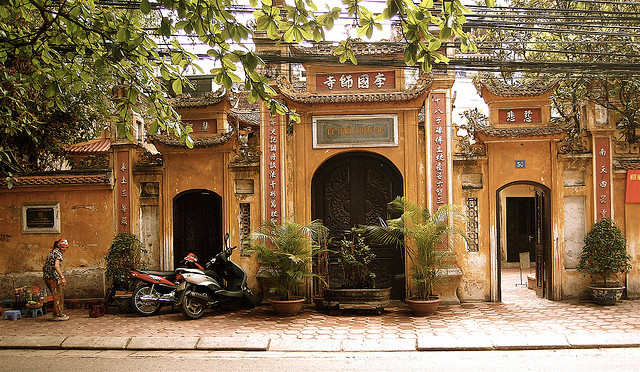 Photo: phongveminhquan.vn
Photo: phongveminhquan.vn
The pagoda is named after Ly Quoc Su, which is also used for the street connecting Hang Bong and Nha Tho, while his full name lends itself to a prominent business avenue in Ba Dinh district.
After his passing in 1131 at the age of seventy, King Ly Anh Tong ordered the construction of a temple on the site where Ly Quoc Su once lived. Today, this location serves as a place of worship for both Buddha and the monk.
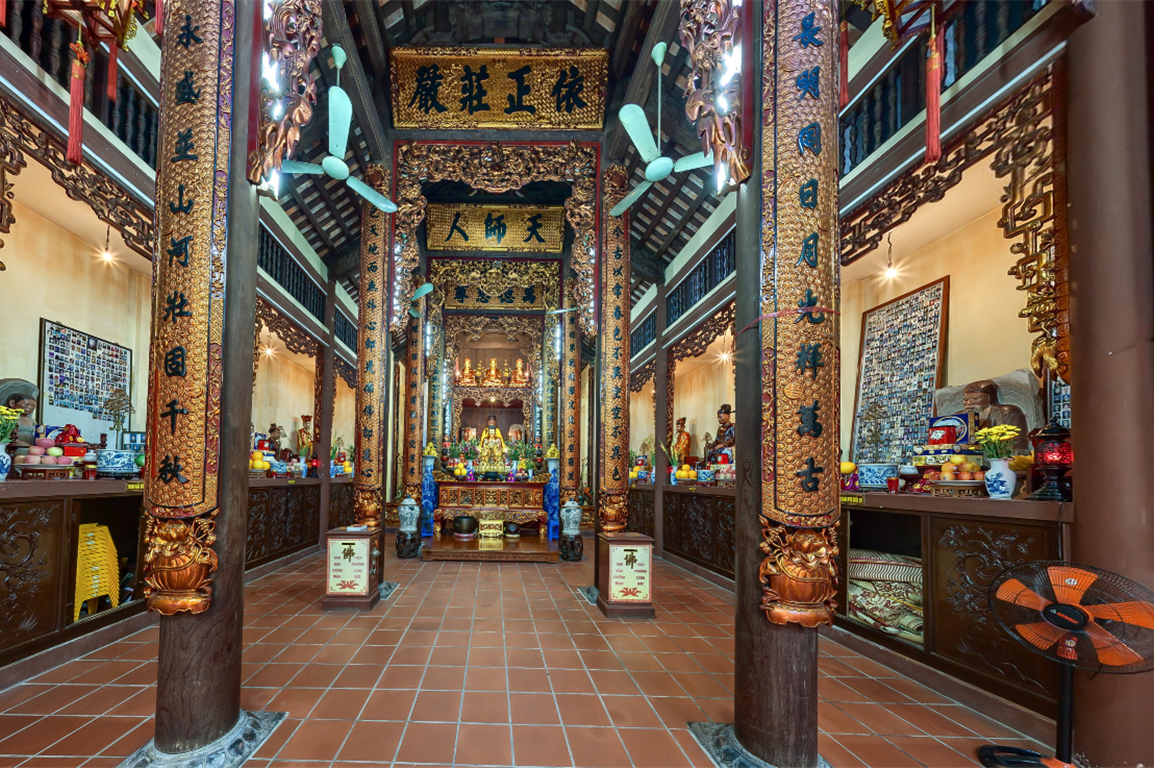 Photo: mytour.vn
Photo: mytour.vn
Currently, Ly Quoc Su Pagoda is a favored place of worship for locals, especially on the first and fifteenth days of each lunar month.
What to See
Despite the numerous restorations, particularly post-1954, Ly Quoc Su Pagoda continues to safeguard various national treasures, including Buddha statues, the statue of Ly Quoc Su, and the nearly 200-year-old Tu Chung bell. The pagoda's rustic structure features yellow walls, wooden beams, bronze-carved panels, and gracefully curved tiled roofs, offering a tranquil environment for worshippers.
It is regularly frequented by local worshippers during religious events, especially on the first and fifteenth days of the lunar months. However, the crowd peaks during the Tet Holiday, as many people flock to the pagoda to seek blessings for health, happiness, and prosperity.
How to Get There
Ly Quoc Su Pagoda is located at 50 Ly Quoc Su Street, a short walk from Hoan Kiem Lake and the Old Quarter.
Travel Tips
- Walking is highly recommended to reach Ly Quoc Su Pagoda. While there are some motorbike parking options available near St. Joseph's Cathedral, arriving via bike should pose no issue.
- If taking a taxi, be prepared for drop-off in the surrounding areas, as Ly Quoc Su Street can get quite crowded.
- Visit in the early morning for a quieter experience, enhanced by the warm morning light.
- As this is a sacred site, visitors should wear respectful clothing.
- Please maintain silence and respect the solemn atmosphere of the pagoda.
Useful Information
- Location: Ly Quoc Su Pagoda
- Best for: Family, couple, solo
- Entrance: Free
- Hours: 8:00 - 17:00
- Distance to city center: 1.6km (1.0 mi)
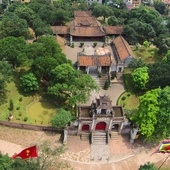
Co Loa Citadel
Being a cultural heritage, a testament to the creativity and technical skills of the old Vietnamese, Co Loa Citadel is definitely an ideal tourist destination that visitors cannot ignore when visiting Hanoi.
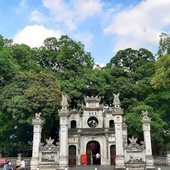
Quan Thanh Temple
Located on Thanh Nien Street, Quan Thanh Ward, Ba Dinh District, Hanoi, Quan Thanh Temple is a Taoist temple and known as one of Hanoi’s four sacred temples which were built to worship four protectors in four directions.
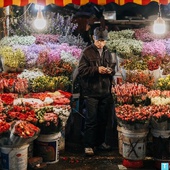
Quang Ba Flower Market
Without the normal hustle and bustle of normal markets, Quang Ba Flower Market is charming in its own way.








